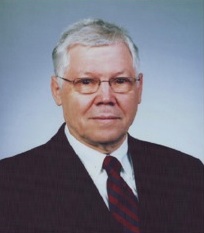From ISFE (International Society of Food Engineering), an IUFoST Disciplinary Group, Newsletter Issue 1, Volume 1, December 2012

In your opinion, what are the main challenges being faced by the food engineering community in developed and developing countries? How can the food engineering community overcome these challenges?
The major challenge which food engineers together with the entire food science community are facing is to provide sufficient, safe and nutritious food to all people around the globe. The food which is offered to the world wide community of consumers has to meet their dietary needs and food preferences for an active and healthy life and, very importantly, it has to be socially and economically accessible. How can we achieve this objective in the long run? To answer this difficult question, the food science community must develop an integrated approach with agriculture and nutrition in order to achieve sustainable raw material production, processing and targeted nutritional concepts. Food Engineering should concentrate on
In the golden age (1960-1990) of food engineering, chemical engineering unit operations were in the focus of research. With the advancement of progress it became clear that a better in-depth understanding of the structure and composition of the food materials and their physiological function after ingestion was important. When the food engineering, or better to say, the food science community, arrived at the level of better understanding, a shift of paradigm took place, more and more raw materials, processed products, and the physiological function of the ingested food moved into focus. New challenges have to be faced but the old ones should not be neglected.
Your view on world hunger and how the food engineering/science community could help to address these issues?
As stated above, the food engineering community should help, as an important step to eliminate hunger, to reduce post-harvest losses and processing losses and show ways to a better utilization of waste and biomass, and of under-utilized raw materials and unconventional resources. Since most of the problems occur in developing countries, all measures should take into account the technical potentials of those countries. It will be important to discuss how existing and new technologies are being introduced and extended into those areas. In my very personal view, a key role in this process has to be played by young, well educated food engineers with roots in those countries; they are close to the problems, know the people and have the knowledge base which is required to solve the problems. Again, a shift in paradigm away from strong support and advice from the outside to a transfer of responsibility to people born and living in developing countries, only in situations where outside help is vital, should that help be provided.
What are the incentives to attract more students to food engineering profession?
If we can demonstrate the challenges that food engineers are facing and the depth and breadth of the field, which ranges from its center in chemical engineering and radiates outward to biology, nutritional physiology, etc., it should not be difficult to attract dedicated young people with a strong background in natural science.
How can food engineering students be better prepared for their future career in the food industry?
Food engineering students should focus on a combined education based on high standards for scientific academic education and industry based vocational training.
Please name five outstanding food engineers who have contributed to the development of food engineering community and how their contributions made a difference in our food world.
Please name five relevant accomplishments made in food engineering research.
What recommendations you have to ISFE leaders to have a presence in the food engineering world and beyond?
Demonstrate to the outside world the potentials of food engineering to resolve some of the most socially relevant questions, i.e., sustainable processing, food safety, and promotion of processed foods as high quality food products.
What priority activities should be in the ISFE agenda?
Promote networking amongst food engineers world-wide; stress education in basic principles of food engineering; promote/emphasize social responsibility of food engineering; take part in discussions on the future of food processing.
Shall IAEF (International Association of Engineering and Food) and ISFE become a single organization in the near future?
That would certainly be a good idea; we should indicate that organizing food engineers under one umbrella strengthens the community, not forgetting that we are a part of the larger world-wide food science community under the overall umbrella of IUFoST.
Prof. Walter Spiess has a couple of questions where he seeks answers from colleagues in the Food Engineering Community: What can be done about the following?:
IUFoST Scientific Information Bulletin (SIB)
FOOD FRAUD PREVENTION